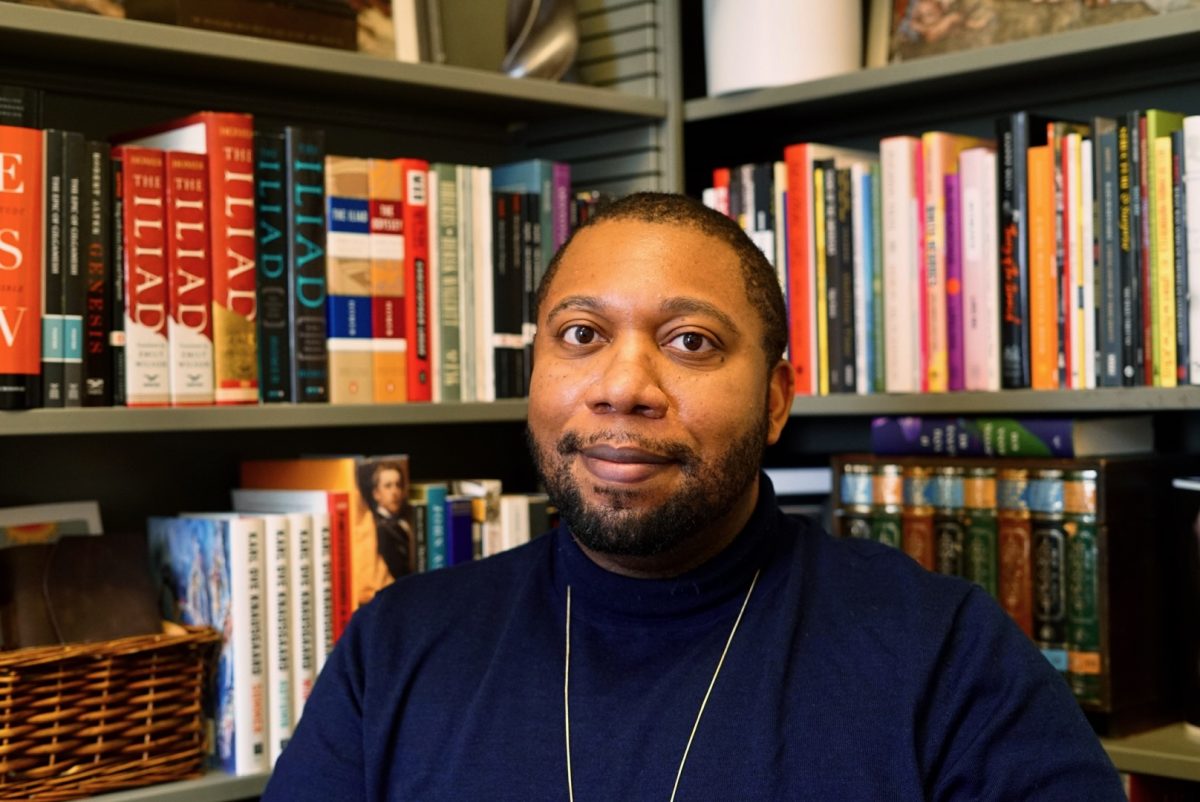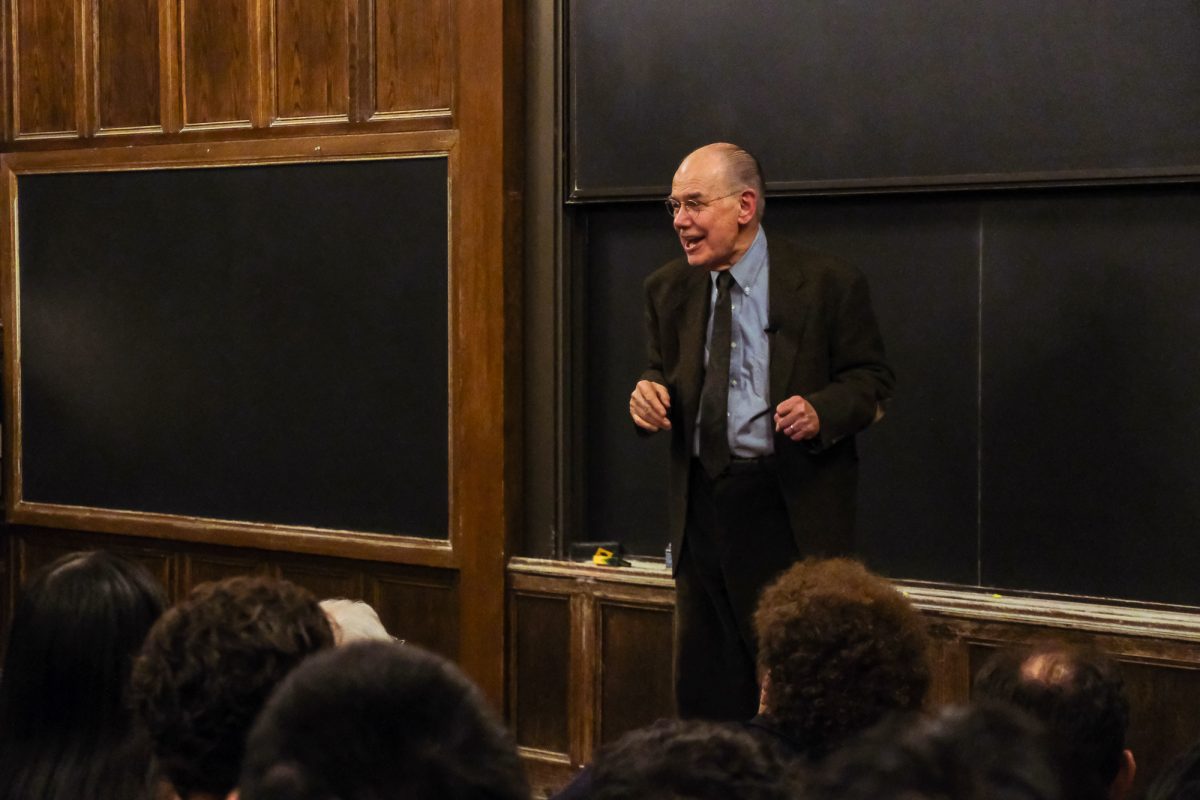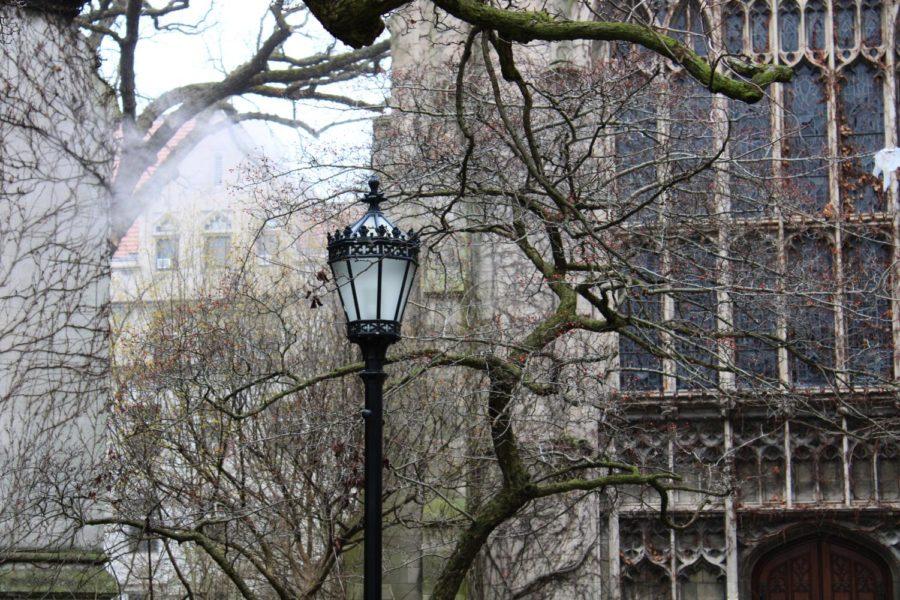Last night, Student Government’s (SG) General Assembly voted to indefinitely table a resolution reaffirming the University’s commitment to free expression. Specifically, it referred to recent instances of speakers interrupted by protesters, including Anita Alvarez and Bassem Eid.
Following extensive debate, General Assembly, which is comprised of the College Council (CC) and Graduate Council (GC), first voted on a motion to reject the resolution. Eight students voted in favor of rejection, 10 voted against rejection, and eight abstained. In response, multiple members introduced a motion to table the resolution indefinitely, and only six members voted against the second motion allowing the tabling to pass.
The resolution was proposed by second-year Matthew Foldi. This resolution calls on the University administration to condemn any student who “obstructs or disrupts” free speech, including making threats to speakers on campus, and to enforce such condemnation. It cited the University’s Report of the Committee on Freedom of Expression and alluded to two campus events disrupted by student protesters earlier this year.
In his presentation to the General Assembly, Foldi explained that he wrote the resolution in response to February events with Cook County State Attorney Anita Alvarez and Bassem Eid, a Palestinian human rights activist and critic of the Boycott, Divest, and Sanctions movement. Both events ended early after student protesters drowned out the speakers.
Foldi added that the Foundation for Individual Rights in Education (FIRE), a group that advocates for free speech on college campuses, awarded the University its highest rating for protection of free speech earlier this year.
“In 2016 alone…18 speakers have been shut down or uninvited from college campuses, and two of those events are the ones stressed by this resolution,” he said. “We are looked upon as an example by other institutions who adopt our speech policies and as such I think it’s important to affirm the importance of free inquiry at the University of Chicago.” 136 people signed the resolution, including 52 professors and Ph.D. students from a wide range of departments and 83 undergraduates, graduate students, and alumni.
Foldi also co-sponsored two resolutions last week calling on the University to divest from China and the investment RSO Blue Chips to divest from Israeli companies listed in CC’s April 12 resolution.
In debating the resolution, several General Assembly members referenced the event with Anita Alvarez, who has been widely criticized for her office’s role in delaying the release of a video of a Chicago Police Department officer shooting 17-year-old Laquan McDonald.
“I do think that at a university, a variety of viewpoints are supposed to be put in front of us,” said Class of 2018 CC Representative Calvin Cottrell. “I was going to show up [to the Alvarez event] and ask very tough questions about what had happened in her office and I think many people were denied the opportunity to ask those questions.”
Class of 2018 Representative Cosmo Albrecht disagreed. “I don’t think we should use this idea of elected officials being…banned from speaking as evidence that free speech is under attack,” he said. “If you’re an elected official you should be willing to face the consequences of your actions…. I think these protests are a necessary part of a democracy.”
SG President Tyler Kissinger explained that while he does not usually speak on these issues, he urged General Assembly members to vote against the resolution. “As a public official it is my obligation not to run out of the room. I was at the Anita Alvarez event, an event with someone whose office has consistently refused to meet with black and Latino communities that her office has over-policed and I don’t think that’s right,” he said. “I think it is well within the rights of people to protest events particularly for public officials…and I urge a no vote.”
After voting against the motion to reject the resolution, multiple SG members motioned to table the resolution indefinitely. Following the passage of this motion, Class of 2016 Representative Mark Sands made a point of order, saying, “postponing indefinitely is the lowest priority motion and I had another motion so it should’ve been voted on first.” In response, Kissinger said, “I didn’t hear the motion,” and adjourned the meeting.
The indefinite tabling of the resolution means that the resolution may be brought up for discussion in future academic quarters.







